
Bringing a new pharmaceutical to market is an imprecise science. Drug development can take a decade or more and cost billions of dollars, and even with all that, a small per centage of new drugs make it all the way through trial periods and into pharmacies. In hopes of speeding up and improving the process, drug developers are turning to computers for help. Though the process is in its early days, breakthroughs in drug development are being made already, and there is plenty to suggest more are around the corner.
The Computer Runs 24/7
Artificial intelligence is making many contributions in the healthcare field. For example, the University of Sydney’s Westmead Applied Research Centre won a $1 million prize from Google. org AI in August which is going towards a digital health program to reduce the risk of heart attack. Drug development is also a sector where AI shines. Flinders University Prof Nikolai Petrovsky and his team used an AI program called SAM to develop a flu vaccine that is getting a phase II trial in the US. The researchers taught SAM to comprehend which drugs have worked and which haven’t, and SAM used that information to suggest a sugar adjuvant that improved the vaccine’s effectiveness.
“The first component took 30 years to develop. The second component, with the artificial intelligence, took about six months,” Petrovsky said. “We trained the AI system and it went and basically screened hundreds of billions of compounds and ultimately identified a single compound which we then took, re-made, tested, and found that it did work and put it in the vaccine.
“That’s the power of it. The computer runs 24 hours a day, seven days a week. So, you set it to work and off it goes.”
This story is from the October 2019 edition of The Venture Magazine.
Start your 7-day Magzter GOLD free trial to access thousands of curated premium stories, and 9,000+ magazines and newspapers.
Already a subscriber ? Sign In
This story is from the October 2019 edition of The Venture Magazine.
Start your 7-day Magzter GOLD free trial to access thousands of curated premium stories, and 9,000+ magazines and newspapers.
Already a subscriber? Sign In

How To Clean Up - Sanitary Franchises To Invest In
It’s a tangible part of this new world we’ve entered after emerging from lockdown. You can smell it in corridors and in shops, and it’s a selling point for hotels reopening. Cleanliness is godliness now, and there is a high demand for sanitary services for the foreseeable future. That makes a cleaning franchise a promising business opportunity. These companies offer it.

Outsourcing: The Next Generation
Cloudstaff is helping businesses meet their staffing needs with ease, speed, and wallet friendliness

SOFT OPENING - CONSUMER CONFIDENCE A KEY FACTOR IN RECOVERY
As states and territories reopened their economies in various phases throughout May and June, it became clear that simply being open is not enough to get firing on all cylinders again. First, there are safety regulations limiting how many patrons a business can serve at a time. Just as important is consumer confidence. If shoppers don’t feel safe visiting a business, they’re not going to, and there’s no forcing them. Some services requiring intimate personal contact have an even harder time with this. Just because someone can get a massage doesn’t mean they’re comfortable with it.
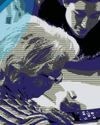
The PERFECT PAIRING
YOUNGSTER.CO MATCHES TEENS WITH ELDERS TO EXCHANGE TECH KNOW-HOW AND TIMELESS WISDOM
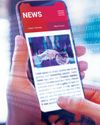
THE PRICE OF NEWS
Australia aims to make tech giants pay remuneration to traditional media
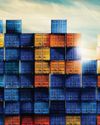
NO CLEAR PATH
RELATIONS WITH CHINA HAVE DETERIORATED, BUT THEY CAN’T REALLY BE ABANDONED
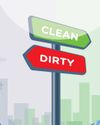
ON THE RESTART
Technology road map lays out vision of energy future for recovery and beyond
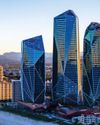
COMING OUT OF OUR CAVES - LIFE IN PUBLIC AS RESTRICTIONS EASE
The pubs reopened to great rejoicing and some free beer as coronavirus restrictions eased across Australia, although unfortunately, it was too late for millions of litres of suds that had to be tipped down the drain. It was strange to be out, but it felt good once you got used to it. Rules vary by state and territory, but over the past several weeks, Aussies have been able to dine out, go to holiday homes, and gather in small groups once more. Lockdown isn’t lockdown anymore, but that doesn’t mean “normal” is back. Here’s where things stand.
IN THE SHADE OF A TRILLION TREES
What reforestation means for Australians
RISKY BUSINESS
IT’S HALF-PAST TIME TO KILL YOUR ORGANISATION'S OUTDATED RISK MANAGEMENT AND ASSESSMENT TOOLS. 6CLICKS IS HERE TO HELP.